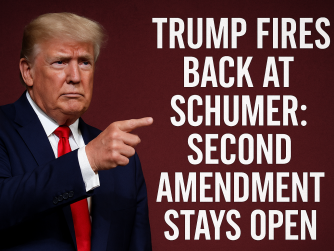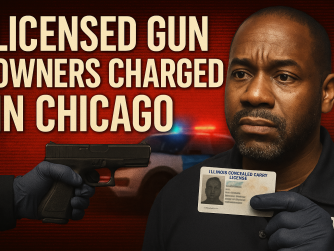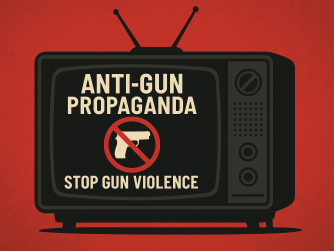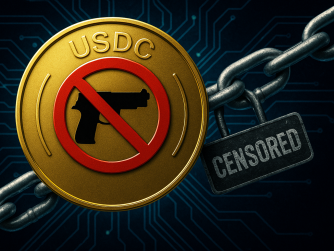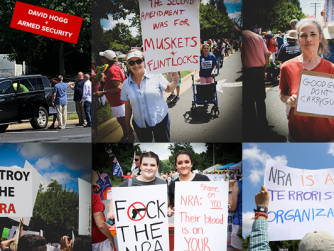In a unanimous decision that reaffirms legal protections for American gun manufacturers, the U.S. Supreme Court on Thursday shut down Mexico’s attempt to sue major firearms companies over cartel violence—delivering a major win for the Second Amendment community and the U.S. firearms industry.
The ruling in Smith & Wesson Brands, Inc. v. Estados Unidos Mexicanos marks a clear stand in defense of the Protection of Lawful Commerce in Arms Act (PLCAA)—a 2005 law passed with strong bipartisan support that shields lawful gunmakers from being blamed for crimes committed by third parties.
At the heart of the case was Mexico’s demand for $10 billion in damages, alleging that American gun companies “knowingly” contributed to cartel violence by failing to stop straw purchases of firearms. But Justice Elena Kagan, writing for the Court, made clear that Mexico’s arguments didn’t hold legal water.
“Because Mexico’s complaint fails to plausibly allege that the gunmakers directly participated in a criminal violation, PLCAA immunity remains intact,” Kagan wrote.
The Court decisively rejected the notion that U.S. manufacturers should be held accountable for violent acts committed by drug cartels using firearms trafficked illegally across borders—especially when the manufacturers sell only to federally licensed distributors and dealers.
Justice Clarence Thomas, in a concurring opinion, warned against loosening the PLCAA’s standards, arguing that courts must demand actual proof of a crime or legal violation—not just allegations—before stripping gunmakers of their immunity.
“Given PLCAA’s purpose, the threshold for bypassing its protections should remain high,” Thomas emphasized.
Justice Ketanji Brown Jackson echoed that sentiment, pointing out that Mexico’s lawsuit was an attempt to impose foreign political priorities through American courts.
“Mexico is effectively asking the judiciary to regulate an industry Congress has already chosen to protect,” she wrote.
Mexico’s case had been temporarily revived by the liberal-leaning 1st Circuit Court of Appeals in 2024, which had claimed the gunmakers could be sued under PLCAA’s “predicate exception”—a narrow clause that permits lawsuits if companies knowingly violate gun laws. But the Supreme Court flatly rejected that logic, saying the exception wasn’t met.
Pro-2A Advocates Applaud the Ruling
Gun rights advocates across the country welcomed the decision as a crucial defense of American sovereignty and constitutional freedoms.
“This is a massive win for the Second Amendment,” said Mark Oliva, spokesperson for the National Shooting Sports Foundation. “Foreign governments shouldn’t get to undermine our laws and drag American companies through the mud over criminal acts they had no part in.”
Many argue that Mexico is trying to distract from its own failure to control cartel violence by scapegoating American gun manufacturers—an approach that critics say ignores the real issue: corruption, weak enforcement, and rampant impunity inside Mexico itself.
“This lawsuit was never about justice—it was about blaming America for Mexico’s internal failures,” said gun rights attorney Dana Loesch.
The Bigger Picture: Protecting Lawful Gun Ownership
The Supreme Court’s ruling sends a strong message that American firearms companies cannot be sued simply because criminals misuse their products. If Mexico had succeeded, it could have opened the floodgates for endless lawsuits against the gun industry—essentially bankrupting companies for actions they didn’t commit.
The PLCAA remains a cornerstone of gun rights legislation, shielding manufacturers and dealers from anti-gun litigation campaigns that seek to impose de facto gun control through the courts.
In rejecting Mexico’s lawsuit, the Court reinforced a critical principle: American laws should be written by American voters—not by foreign governments or activist judges.
With Smith & Wesson and other manufacturers now protected from this international legal assault, the firearms community can continue defending lawful gun ownership without fear of politically motivated lawsuits launched from across the border.


